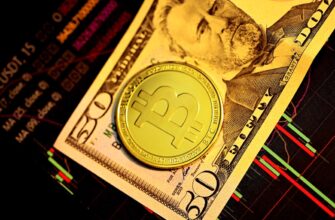- The Intricate Dance Between BTC Price and Indian Banks
- What Drives Bitcoin’s Price Globally and Locally?
- How Indian Banks Influence BTC Transactions and Pricing
- Current Banking Landscape for Bitcoin in India
- Step-by-Step: Buying Bitcoin Amid Banking Hurdles
- Future Outlook: Banking Evolution and BTC Prices
- FAQ: BTC Price for India Banks Explained
The Intricate Dance Between BTC Price and Indian Banks
Bitcoin’s volatile pricing consistently captures headlines globally, but in India, the relationship between BTC value and banking policies creates a uniquely complex landscape. With over 15 million crypto investors nationwide, understanding how Indian banks influence Bitcoin prices is crucial for traders and enthusiasts. Regulatory shifts, payment gateways, and banking restrictions directly impact local BTC premiums, liquidity, and accessibility. This article demystifies the forces shaping the BTC price for India banks, offering actionable insights for navigating this evolving ecosystem.
What Drives Bitcoin’s Price Globally and Locally?
Bitcoin (BTC) operates on decentralized principles, yet its value hinges on tangible factors. Global demand-supply dynamics, institutional adoption, macroeconomic trends (like inflation), and regulatory news primarily dictate price movements. In India, however, local elements amplify volatility. Banking infrastructure limitations, rupee liquidity constraints, and exchange-specific premiums can cause BTC prices to deviate 2-8% from international rates. For instance, during high-demand periods with banking bottlenecks, Indian exchanges often quote BTC at a premium due to restricted arbitrage opportunities.
How Indian Banks Influence BTC Transactions and Pricing
Indian banks don’t directly set Bitcoin prices but profoundly affect market dynamics through regulatory compliance and transaction controls. Key influences include:
- Payment Processing Restrictions: After RBI’s 2018 circular (later overturned by Supreme Court), many banks still flag or delay transfers to crypto exchanges, reducing buying pressure and liquidity.
- KYC/AML Enforcement: Strict bank-led verification processes slow onboarding, indirectly suppressing retail demand.
- Tax Reporting Mandates: 1% TDS on crypto transactions since 2022 increases operational costs, often reflected in higher BTC ask prices on exchanges.
- Liquidity Constraints: Limited banking partnerships for exchanges create supply imbalances, widening bid-ask spreads.
These factors collectively contribute to the distinctive BTC price for India banks ecosystem, where regulatory friction translates into measurable price differentials.
Current Banking Landscape for Bitcoin in India
Post-2020 Supreme Court ruling, banks cannot outright ban crypto transactions but maintain cautious oversight. Major institutions like SBI, HDFC, and ICICI impose transaction limits or require additional compliance checks for crypto-related transfers. The absence of formal banking support forces exchanges to rely on payment processors, adding fees that inflate local BTC prices. Recent discussions about RBI’s digital rupee (e₹) further complicate the scene, potentially introducing centralized competition to decentralized assets like Bitcoin.
Step-by-Step: Buying Bitcoin Amid Banking Hurdles
Navigating banking challenges requires strategy. Follow these steps:
- Choose a SEBI-registered exchange: WazirX, CoinDCX, or ZebPay offer INR pairs with banking integrations.
- Complete KYC: Submit PAN/Aadhaar for verification (mandatory per PMLA guidelines).
- Deposit INR: Use IMPS/NEFT/UPI; expect possible delays or extra scrutiny from banks.
- Buy BTC: Place limit/market orders, factoring in India’s typical 0.1%-0.5% premium over global rates.
- Withdraw to Private Wallet: Mitigate exchange counterparty risk post-purchase.
Future Outlook: Banking Evolution and BTC Prices
India’s crypto regulation bill remains pending, but global trends suggest gradual normalization. Potential developments include:
- Clearer RBI guidelines reducing banking friction
- Institutional custody solutions via banks
- Tax reforms to lower TDS burdens
- Enhanced UPI integrations for seamless transactions
Such changes could narrow India’s BTC price gap with global markets by boosting liquidity and competition.
FAQ: BTC Price for India Banks Explained
Q: Why is BTC more expensive on Indian exchanges?
A: Banking restrictions limit arbitrage, while compliance costs and rupee liquidity issues create premiums over global averages.
Q: Can Indian banks freeze accounts for crypto trades?
A: Legally, no—since the Supreme Court overturned RBI’s 2018 ban. However, banks may temporarily hold funds for enhanced due diligence.
Q: How do I check real-time BTC prices in India?
A: Track rates on CoinMarketCap or CoinGecko, filtering for INR pairs. Remember to add 2-5% for local exchange premiums.
Q: Will banking policies make Bitcoin illegal in India?
A: Unlikely. The government focuses on regulation, not prohibition, with taxation frameworks already established.
Q: How do bank charges affect BTC investments?
A: Transaction fees, TDS deductions, and GST on trading fees compound costs—often adding 2-3% overhead versus global buyers.








